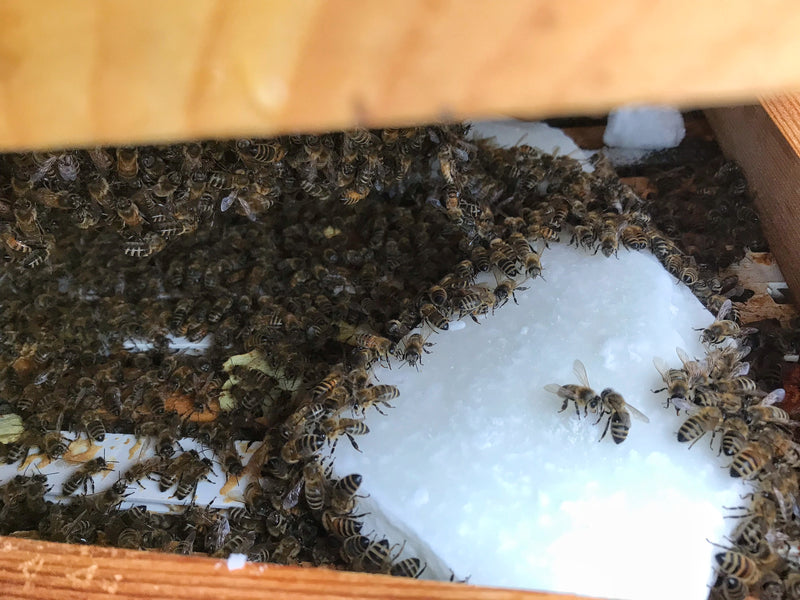
Hibernation: a peek inside your wintering hive
At this point in the season, beekeepers are on their last steps of wintering their honeybee colonies. You may have reduced the hive size down to one box, placed a fondant on top of the frames, or even added an insulating ‘quilt box.’ Whichever your wintering methods may be, you are trying your best to ensure your beehives survive the long, cold and often wet wintering months. To best set up your hive for overwintering success you may want to consider these three questions:
- Is your hive disease free?
- Does your hive have enough food?
- Will your hive be warm and dry?
While we may be faced with factors outside of our control, such as the weather, by covering these three questions you can rest assured that you did everything you could to best support your colony.
Now that your colony is just about tucked away for winter, what is actually happening inside the hive? During the long winter months, the honeybee colony huddles in a tight cluster surrounding the queen. The workers shiver by vibrating their wing muscles in order to increase the internal temperature of the hive. As the worker bees on the outside of the cluster become cold, they rotate inwards to warm up. In order to sustain a warm internal temperature, food is required to fuel the workers! This is why it's important to have plenty of stored capped honey. This is also why fondant or dehydrated sugar blocks are important as they act as an insurance in case honey stores run out mid-winter. When weather permits, at Home Grown Bee, we take a quick peek under the lid to see if all the supplement fondant is consumed. This is our indicator that our colonies are powering through winter stores quickly and may need a top up!
As the outside temperatures warm come spring, you may notice some bees leaving the hive by the masses- this is to relieve themselves, typically known as ‘cleansing flights.’ It is also a great opportunity to stretch their wings and acquire some fresh air! For us beekeepers, it's a great sign that our colonies have made it through the toughest months- wintertime.
